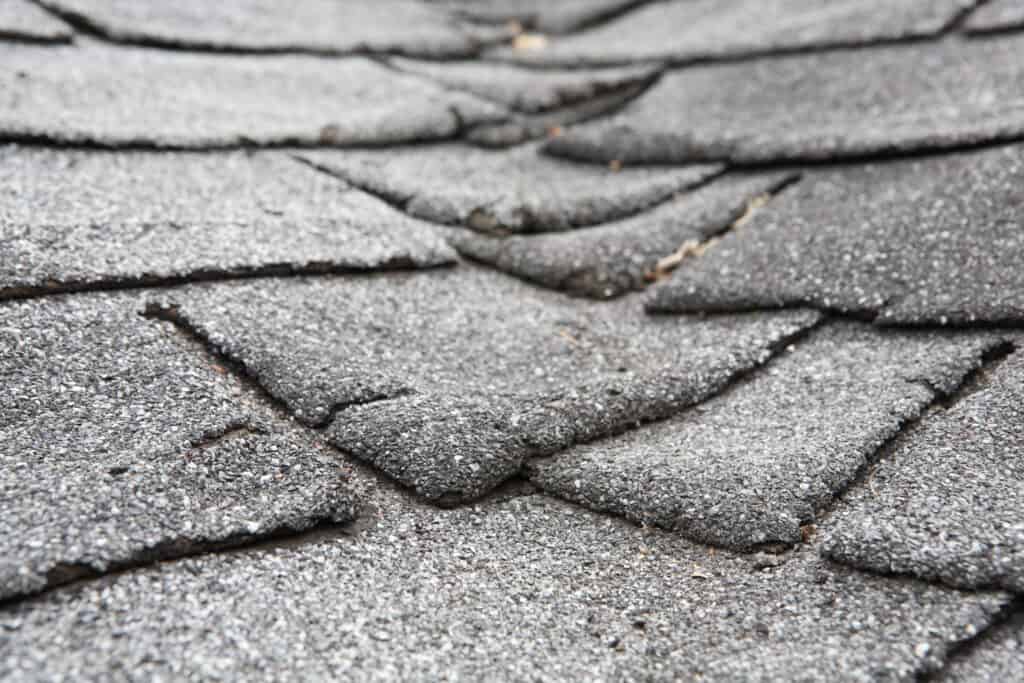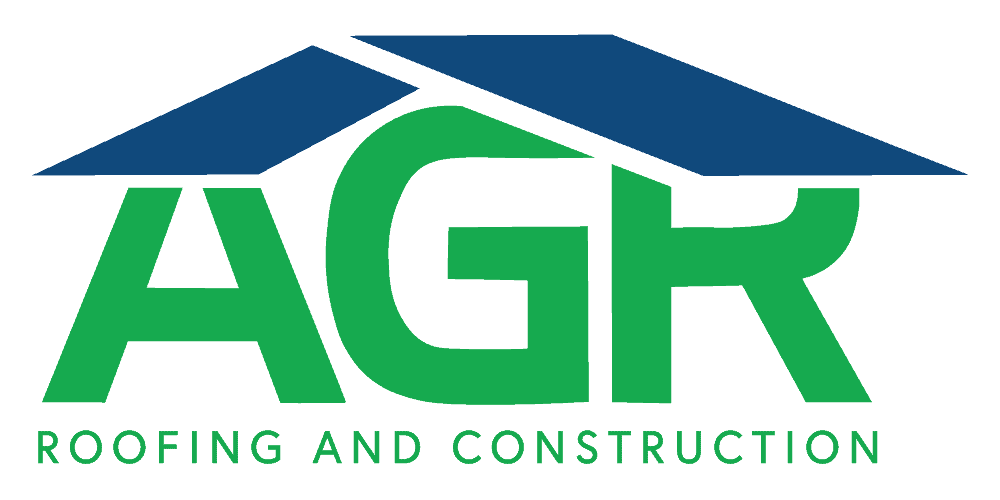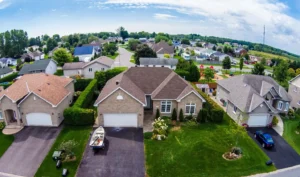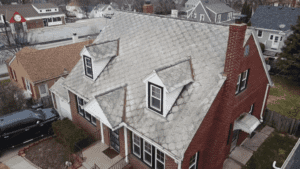Under normal weather conditions, a roof replacement should last at least 15 to 20 years.
However, that 15-to-20-year lifespan applies only to roofs made of basic materials, such as standard three-tab shingles. The expected lifespan estimates of roofing materials also don’t account for major weather events like hail or tornadoes. And homeowners who want to extend the life of their roofs have several other options.
Long-lasting roofs may not be the most affordable option, but they should save you money in the long run.
Here’s a rundown of the most durable residential roofing options on the market today.
20- 30 Year Roofs
Architectural Asphalt Shingles have a lifespan of 24 to 30 years
Architectural or dimensional shingles are designed to mimic the appearance of high-end cedar and slate roofing. As a result, they are much thicker, heavier, and more durable than standard three-tab asphalt shingles.
Dimensional shingles are made up of three layers. The foundation is a fiberglass mat. Mineral granules with ceramic coating are in the center. On the outside, water-resistant asphalt is used. Laminating two shingles together results in an even thicker product in the traditional manufacturing process.
Architectural shingles have a longer lifespan than standard asphalt shingles due to multiple layers of premium material.
Homeowners can expect a reasonable lifespan of at least 24 to 30 years if properly maintained.
Architectural Asphalt Shingles have a lifespan of 24 to 30 years.
25-40 Year Roofs
Shingles: Premium or Luxury: 25 to 40 years
Luxury or premium asphalt shingles are multi-dimensional shingles designed to have a high-end appearance similar to slate and other natural materials.
These are triple-laminate products, as opposed to architectural shingles, which are double-laminate. Premium shingles are the thickest, largest, and most durable asphalt shingles available.
Luxury asphalt shingles that are well-maintained should last for at least 30 years.
Premium asphalt shingles have a lifespan of 25 to 40 years.
40-50 Year Roofs
Composite shingles have a lifespan of 40 to 50 years.
Synthetic polymer and/or recycled rubbers and plastics, as well as laminate, wood, or slate, are used to make composite shingles.
Composite synthetic shingles, like architectural and premium shingles, are designed to look like natural slate or cedar. Composite shingles, on the other hand, appear more authentic than any other type of asphalt shingle.
These materials are virtually indistinguishable from the original and can even replicate graining, stone patterning, and manual tool marks.
Composite shingles are certainly appealing. The real draw, however, is that these products are designed for performance. These shingles have a high resistance to high winds, impacts, UV rays, leaks, and algae growth.
Composite shingles have a lifespan of 40 to 50 years if properly cared for.
Composite shingles have a lifespan of 40 to 50 years

Wood Shakes and Shingles 30 to 50 years
Natural wood is a very durable material that can be used as a roof for several decades. Wood has some limitations, including inherent vulnerabilities to fire, direct moisture, and extreme dryness.
However, properly treated and maintained wood makes an excellent – and long-lasting – roofing material.
Roofing materials include a variety of woods. Because of its natural insect-resistance properties, cedar is the most common. Teak and wallaba are also popular choices.
Cedar, teak, and wallaba roofs should last for several decades if they are cleaned, inspected, and maintained on a regular basis.
Cedar: 30 to 50 years or more
Longest Lasting Roof Materials: 50 + years
- Metal Roofs: 30 to 100 years
- Concrete Tile Roofs: 50-100 years
- Clay Tile Roofs: 75-100+ years
- Natural Slate Tile Roofs: 50-150+ years
Metal Roofs
Another long-lasting roofing material is metal. Finishing, treating, and installing metal makes it resistant to corrosion, moisture, impact, UV rays, fires, and high winds. It is an environmentally friendly and energy-efficient option that can last for decades.
Not all metal roofing is created equal. Metals, compositions, coatings, and installation methods all have an effect on the final product’s lifespan.
Galvanized steel has a life expectancy of 30 to 50 years.
Tin: 50-75 years
60 years of corrugated iron
Copper: 70 to 200 years or more
Zinc: more than 80 years

Concrete Roofs
Concrete roofing is low-maintenance, long-lasting, and strong, and it can become even stronger with age as it dries out. It’s becoming more popular for residential use, and it gives homes a modern, contemporary look.
Although concrete is naturally fire-resistant, its porous surface necessitates protection from water, carbon dioxide, and impact damage.
Concrete roofs that have been weatherproofed and maintained should last at least 50 years and possibly 100 years or more.
Concrete: 50 to 100 years or more
Clay Tile Roofs
Clay or terracotta tile is one of the most durable roofing materials. It is naturally fire-, insect-, and sun-resistant, and it ages well and retains its beauty over time.
Terracotta has long been used in hot, dry climates. Manufacturers are developing clay roofing products that overcome its weather-related limitations and allow these tiles to be used in a variety of climates.
Regular inspections, maintenance, and upkeep are required to keep these tiles in good condition and prevent weather-related deterioration.
After that, homeowners who appreciate the distinctive look of natural clay can invest in this roofing with confidence that it will last for decades.
Natural Slate Tile Roofs
Slate is a long-lasting stone with an elegant, upscale appearance. As a result, it’s a very popular higher-end roofing material.
Slate is durable and low-maintenance, but it is brittle and susceptible to impact damage from falling objects, hail, and even inexperienced foot traffic.
Aside from extreme conditions, slate lasts a long time. Slate that has been well-maintained should last at least 50 to 75 years. In fact, slate roofs are expected to outlive the person who installs them.
If you like the look of natural stone but don’t want to replace your house’s roof again in your lifetime, this is a roofing option to consider.
Soft Age range: 50 to 125 years
Hard Slate age ranges from 75 to 200 years.
The most durable roofs have a high-quality installation team and regular roof maintenance
Products cannot do everything on their own. If the roofers do a poor job, even the most durable and low-maintenance roofing materials, such as concrete, will be prone to leaks and less resistant to the elements.
Furthermore, installing these higher-end specialty roofing products frequently necessitates more skill and experience. Architectural and premium asphalt shingles necessitate more knowledge than standard three-tab shingles. Composite shingles necessitate more knowledge than architectural or premium shingles.
Metal may be simple to maintain once installed, but its installation methods differ significantly from those of traditional shingles. Wood, concrete, clay, and slate roofs each have unique requirements for the roof installation, make sure the local roofing company you choose is able to get you the roofing materials you want and is able to install the roof as well.





